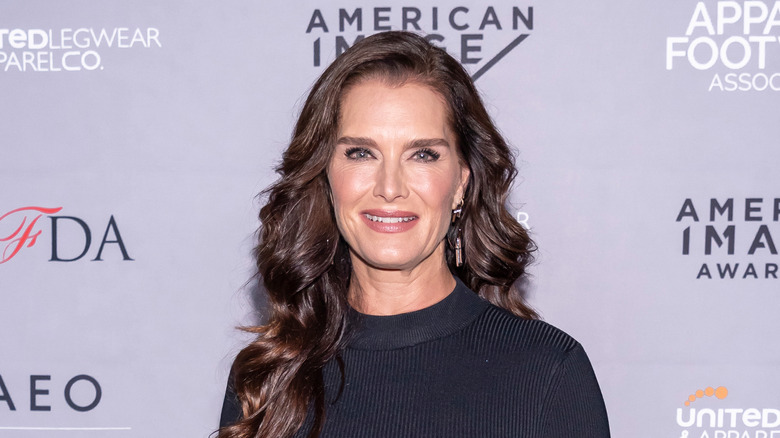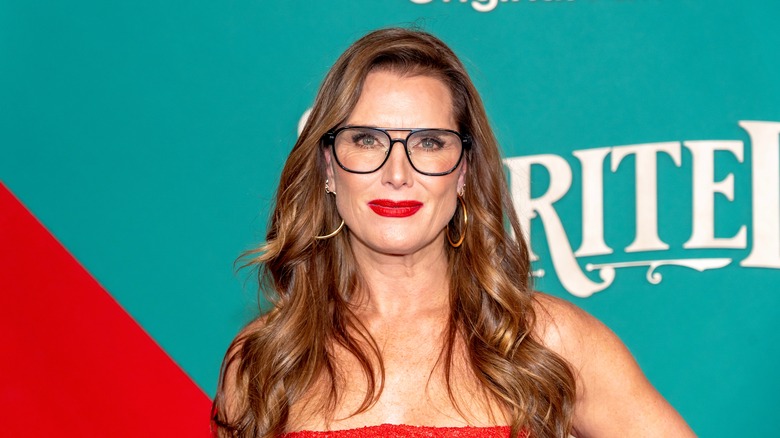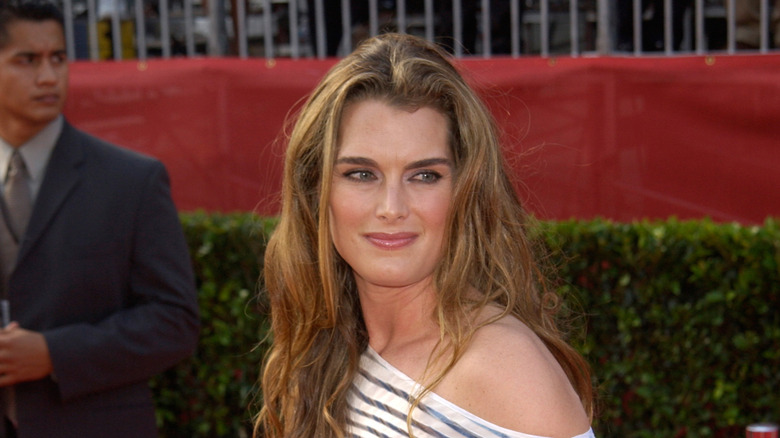Why Brooke Shields Didn't Let Her Daughters Model As Kids
In the fast-paced world of Hollywood, the life of a celebrity can be both thrilling and daunting. With the constant media scrutiny and jam-packed schedule, it's no wonder that some celebrities prefer to shield their children from the glitz and glamor of the industry. While some well-known figures like Jason Momoa, Matt Damon, and Angelina Jolie have shown reservations about their children entering the entertainment industry, there are others who take an even stronger stance. Just like Brooke Shields, who made sure she stopped her daughter from modeling at all costs.
The world has seen the stunning transformation of Shields, starting her career as a child model. Shields quickly made a name for herself at the tender age of 12, earning praise for her performance in Louis Malle's movie, "Pretty Baby." As she grew older, she continued to model and showcase her acting skills in various projects throughout the 1980s, such as "The Blue Lagoon" and Franco Zeffirelli's "Endless Love," gaining further recognition for her talent.
While she has indeed benefited from starting early in showbiz, the actor said that she was reluctant when her daughter, Grier Henchy, expressed her interest in modeling. "I fought it for so long. It's such a different industry now than it was," she explained in an appearance on "Live! with Kelly and Mark."
Brooke only wanted to protect her daughter
In her defense, the mom of two was just trying to protect her daughter. Behind the glamor of the tall, stunning runway models lies a reality that is far from alluring and heavenly. While modeling might appear exciting with images of sipping champagne on luxurious yachts and basking in compliments, the truth, especially for runway models, can be quite cruel. And Brooke Shields was well aware of this. She further added, "That's brutal, and backstage is just brutal. I never did runway. I don't think I would've been able to handle it."
Despite her reservations, the "Suddenly Susan" star eventually relented and allowed her daughter to pursue her passion. However, it was not without some guidelines that Grier Henchy needed to follow. Shields continued, "I finally had to give in and say if you're gonna do this, A) I'm not gonna be your manager. You're going to be with an agency. You are gonna have a great work ethic. It's not going to be comfortable and you're gonna listen to me."
She also added that Grier needed to pursue her education while modeling. Shields knew the importance of education, she told Glamour, "The ability to say I graduated with honors from this esteemed place, coming from the entertainment industry, it enabled me to have my own opinions." She pursued higher education at Princeton University, and just like her, she wanted her daughter to balance her academic and professional commitments.
She released a documentary on her experiences in the industry
After the release of Brooke Shields' documentary titled "Pretty Baby: Brooke Shields," people were reminded of the heartbreaking aspects of her career in Hollywood as a young actor. Unlike many teens today who can shape their careers, Shields wasn't granted the same autonomy back then. Instead, someone else was in charge of her career decisions – her mom and manager Teri Shields.
After the premiere of the documentary, Brooke shared how her daughters checked in on her. She told People, "[Rowan] called me from college and was like, you know, 'Mom, let me see what you're wearing,' and 'I'm so proud of you. My [other] daughter was just like, 'Do you want me to hold your hand? Do you want me to hold your phone? Do you want me to hold your purse?' And I was like, 'No thank you, just hold my hand!'"
Brooke made the documentary to raise awareness on what's happening behind the glamorous life in Tinseltown. The two-part documentary revealed some tragic details about Brooke as it explored the harmful culture of objectification of young girls. However, the star had a greater mission on releasing the said documentary. She told Variety, "Everybody is identifying with a different element of the doc for their own selves personally, and to me, if I have any value, it's to be a conduit to people being able to understand their own selves better."


